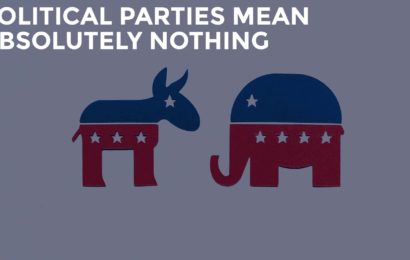
Political Violence Killed Rome
Shine, Perishing Republic
Part I: Political Violence Killed Rome and Could Kill America
On January 6, 2021, a right-wing mob invaded the US Capitol. They erected a hanging gallows, some of them were armed, some of them carried flex cuffs, and many of them used flag poles as weapons. A few chanted “Hang Mike Pence.” This was clearly a mob intent on violence and, possibly, murder. These mobs are the type of disease that ultimately killed the Roman Republic.
Before Ancient Rome was an empire, it was a republic. In fact, it served as a primary inspiration for the Founding Fathers. From 509 BC to 44 BC, Romans had a (somewhat) representative (somewhat) democracy. Their government was divided into two branches instead of three. Assemblies of Roman citizens voted on members of the executive branch who managed the city. The consuls, the highest-ranking executive branch position, then appointed Roman senators who served for life. Their system was different from the US system, but it was a system of laws. Until it fell apart.
Scholars of ancient history have debated the cause of the republic’s death since Julius Caesar bestrode the narrow world. Was it murdered, did it die by suicide, or did it die of natural causes?
The Roman Republic died while suffering from wealth inequality, an unresponsive legislature, militarism, and a few brilliant tyrants. These were malignant conditions, but the republic ultimately died by suicide.
The fall of the republic can be said to begin at dozens of different points in history. For this article, let’s start the diagnosis at 133 BC.
By the 100s BC, Rome had a problem of wealth inequality. When the Republic’s legions conquered new land, that land was literally owned by the Republic much as national parks are owned by the US federal government. The government of the Republic was supposed to apportion that land to everyday Romans, including military veterans. However, the senate was run by patricians (old money elites) in the pocket of other rich guys. The senate transferred the majority of the conquered land to rich guys. Those oligarchs then used slave labor to work the land.
So, you have rich people with massive plantations farmed by slaves. Everyday Romans couldn’t work their own land because they didn’t own any, and they couldn’t work someone else’s because they weren’t willing to work for free. This is the same thing that nearly destroyed the American Republic in the 1860s. It’s also not fundamentally dissimilar from the way wealth is concentrated in the United States today. The patricians of today run massive corporations. Their plantations are worked by the criminally underpaid.
In the mid-100s BC, a tribune of the plebs named Tiberius Gracchus proposed the Lex Sempronia Agraria. A tribune of the plebs was an elected office specifically designed to represent the plebs, the common Romans. Gracchus’s law would have redistributed all of that conquered land, giving it to the landless, the homeless, and the poor. This agrarian reform would provide them a path out of poverty, create generational wealth, and expand the tax base. Furthermore, the law would have expanded the number of men eligible for military service because, at the time, military service required a certain amount of wealth. Basically, soldiers had to be able to provide their own gear.
Despite the legislation being a potential boon to the republic, the rich plantation owners were outraged. They resisted adamantly in the senate. At this point, the republic was about 400 years old and was in serious fiscal and physical danger. Those rich dudes weren’t paying their taxes (rich dudes never do), and there were barely enough legionnaires to defend Rome.
Schoolhouse Rock: Ancient Rome would tell you that a bill was first proposed by a member of the legislature — a senator, consul, or tribune of the plebs. The bill passed the senate. The bill then went to the plebeian assembly. The plebeian assembly passed the bill, and it became a law. The executive branch then carried out the law. However, the part about proposing the bill in the senate was a norm, not a law. Senators and tribunes always proposed the bill before the senate, and they always honored the senate’s decision, but they didn’t explicitly have to. Because his bill was so incredibly popular with the public, Tiberius took his law directly to the people’s assembly despite the senate’s objection. This was technically legal, but it was almost never done.
One of the other tribunes, a tribune sympathetic to the oligarchic senate, vetoed the bill despite the people’s vote. So, Tiberius went from normbreaking to lawbreaking. He ordered his goons to physically remove the other tribune. This act was illegal. Tribunes were sacrosanct; merely touching a tribune was a crime. With the opposition tribune removed, voting resumed. The plebeian assembly passed the bill into law.
Tiberius had committed a crime in physically removing the opposition, but political power comes from the edge of a sword. The senate vowed to prosecute Tiberius as soon as his term of office ended; sitting officeholders couldn’t be prosecuted. To avoid criminal prosecution, Tiberius ran for tribune again. He proposed some more legislation that the plebeian assembly loved — shortening military contracts and expanding Roman citizenship.
Due to his popularity, he was nearly guaranteed to be reelected. Seeing no legal way to stop Tiberius, Senator Publius Cornelius Scipio Nasica declared, “Now that the consul has betrayed the state, let every man who wishes to uphold the laws follow me!” A group of conservative senators and a mob of supporters marched on Tiberius. Tiberius was beaten to death with clubs.
According to Plutarch, this was the first act of political violence in the nearly 400 year history of the Roman Republic. The Republic wouldn’t survive another 100 years.
Wealth was concentrated in the hands of a few, endangering the health of the republic and condemning a large portion of the public to poverty. The senate, in cahoots with the wealthy class, failed to act. When legislation was proposed to ameliorate the suffering, the senate acted against the interests of the people and the republic. In response, a popular politician broke norms. Then, he broke laws. In response, the opposition broke laws. Then, they committed murder. Once violence was injected into the political bloodstream, it created a thirst.
Politicians began to think if I lose my election, I’ll be prosecuted. If my mob doesn’t beat the hell out of my opponents, their rioters will beat the hell out of me. I can’t afford to lose, and I can’t afford to compromise. My life depends on it.
A 400-year old republic couldn’t survive the existence of violence as a legitimate political tool. Our 244-year old republic probably can’t either.
Next: Tiberius Gracchus’s brother follows in his footsteps






